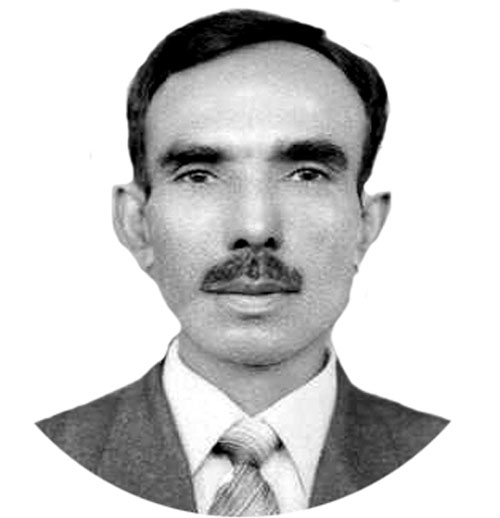Pak-Russia relations on strategic path
DURING a recent visit to Pakistan, Russian Foreign Minister Sergey Lavrov met Prime Minister Imran Khan, Foreign Minister Shah Mahmood Qureshi and Chief of Army Staff General Qamar Javed Bajwa.
In their interactions, the entire range of ties and enhancing understanding on mutual areas of interest particularly in the fields of security and defence, energy, counter-terrorism, economy and trade including Afghan peace process was discussed. They agreed to further promote cooperation in this regard.
Qureshi said that he also briefed his Russian counterpart about the gravity of the human rights situation in the Indian Occupied Kashmir.
Gen Bajwa, while talking to Lavrov, stated that Pakistan welcomes all initiatives which can bring peace and stability to Afghanistan, as the whole region will benefit from it.
The statement issued by the Russian Foreign Ministry termed the situation in Afghanistan a “common concern”, elaborating, “We look forward to an early finding of a constructive solution in order to end the civil war in Afghanistan through agreements on the formation of an inclusive government with the participation of the Taliban Movement”.
Russia, like Pakistan, China and Iran, is concerned that the US withdrawal from Afghanistan without a prior peace deal could jeopardise regional security.
With the US strengthening its military alliances with India, Russia has parallelly been coming closer to China, while ignoring Indian concerns about its closeness to Pakistan.
The emerging shift in geopolitical dynamics has pushed Russia closer to Pakistan, with the two countries sharing common interests and similar strategic aims.
Notably, after the end of the Cold War, the US left both Pakistan and Afghanistan to face the fallout of the Afghan war After the 9/11 tragedy, America, again, needed Pakistan’s help.
Pakistan was granted the status of non-NATO ally by the US due to the early successes, achieved by Pak Army and Inter-Services Intelligence (ISI) against the Al-Qaeda militants.
But, when the US-led allies felt that they are failing in coping with the stiff resistance of the Taliban in Afghanistan, especially America started accusing Pak Army and ISI of supporting the Afghan Taliban.
When the US-led NATO decided to end the prolonged war in Afghanistan and to withdraw their forces, again, Washington needed Pakistan’s assistance.
Since the US Special Representative for Afghan Reconciliation Ambassador Zalmay Khalilzad started his efforts to convince the Taliban to have direct talks with the US, he admitted that Pakistan has been playing a major role which also resulted into the US and the Taliban agreement in Doha — the capital of Qatar on 29 February, this year.
US Secretary of State Mike Pompeo had, particularly, thanked Islamabad for efforts in helping reach the agreement.
And America which has signed several agreements, including defence pact with India, is still supporting New Delhi to counterbalance China.
In the recent past, during his visit to New Delhi, US Secretary of State Pompeo along with Defence Secretary Mark Esper, the US and India signed a pact to share sensitive satellite and map data, as Pompeo warned of the threat posed by an increasingly assertive China.
In its report on Counter Terrorism released on June 24, 2020, US State Department allegedly stated that Pakistan continued to serve as a safe haven for regionally focused terrorist groups and allowed groups to target India and Afghanistan.
While Pakistan’s Ambassador to the UN Munir Akram handed over to the UN Secretary General Antonio Guterres a dossier on India’s campaign to promote terrorism in Pakistan by pointing out that it was violation of international law, the UN Charter and Security Council resolutions.
Taking cognizance of the US double game, Islamabad has been strengthening its relations with Russia.
During his first trip to Moscow, Gen Bajwa on 24 April 2019 met the Commander of Russian Ground Forces Colonel General Oleg Salyukov who acknowledged achievements of Pakistan Army in the fight against terrorism.
He stated that Pakistan is a geo-strategically important country and Russia was keen to expand its existing bilateral military-to-military cooperation.
Russia and China favour Pakistan’s efforts towards reconciliation and peace in Afghanistan, which are essential for the entire region.
On June 9, 2017, Pakistan’s ex-Prime Minister Nawaz Sharif held a meeting with Russian President Vladimir Putin on the sidelines of Shanghai Cooperation Organisation (SCO) summit in Astana, Kazakhstan.
President Putin stated: “Pakistan is an important partner for Russia in South Asia” and congratulated the Premier Sharif on Pakistan’s full membership to the SCO. An agreement had been signed in Islamabad on 07 August 2018 between Pakistan and Russia for training of Pakistani troops in Russia.
On 27 September 2018, Islamabad and Moscow signed a historic $10 billion offshore gas pipeline agreement in Moscow. The project will help Russia cement its place in the energy market of Pakistan.
Under the agreement, a state-owned Pakistani company will collaborate with Russia’s energy giant company Gazprom.
On 06 February 2019, during a visit of the Russian delegation, headed by Gazprom, the Russian side pledged an investment of $14 billion in offshore gas pipeline project.
Islamabad will also gain access to the Russian market to boost its overall exports, while Moscow offered to revive Pakistan Steel Mills.
As regards the military relations, defence-counter terrorism related agreement was signed in 2014. Under the deal 4 Mi35 helicopters were also sold by Russia to Pakistan.
Since 2016, Islamabad and Moscow have been conducting joint military exercises named DRUZBHA.
Pakistan has already allowed Russia to use Gwadar port through China-Pakistan Economic Corridor (CPEC).
Islamabad plans to join CPEC with Eurasian Economic Union (Central Asian Republics). Nevertheless, Pak-Russia relations are rapidly moving on strategic path.
—The writer is freelance columnist based in Lahore.










